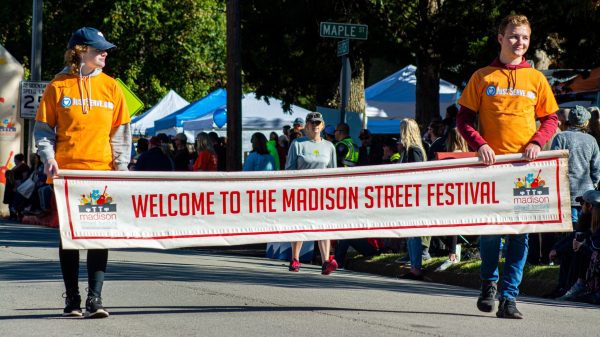Three groups joined the chorus of calls for state Rep. Will Dismukes, R-Prattville, to resign for attending an event celebrating the birthday of the Klu Klux Klan’s first grand wizard.
The Montgomery nonprofit Alabama Arise, the Alabama State Conference of the NAACP and Greater Birmingham Ministries in a joint statement on Friday called for Dismukes’ resignation and for the state Legislature to address systemic, racially-oppressive policies.
“Our elected officials and appointed leaders should respect the full dignity, worth and humanity of all people they represent. We urge all political parties and public officials to acknowledge the harm that white supremacy continues to inflict upon Alabama. And we call upon them to dismantle white supremacist structures through intentional policy changes,” the groups said in the statement.
Dismukes attended a birthday celebration for Nathanial Bedford Forrest, a Confederate general and first Grand Wizard of the Ku Klux Klan, then posted a photo of himself at the event to his Facebook page, which he has since either deleted or made private.
Dismukes later told WSFA that he won’t apologize for his family’s service in the “war between the states” that he said wasn’t primarily fought over slavery, that he’s not a racist but that he doesn’t see the need for the current racial reconciliation.
State Sen Clyde Chambliss, R-Prattville, on Monday called for his resignation, as has the Alabama Democratic Party.
“The cause of white supremacy permeates our state’s fundamental governing document. When the president of the 1901 constitutional convention, John Knox, was asked why Alabama needed a new constitution, his answer was clear: ‘to establish white supremacy in this state,’” the three groups said in the statement.
“Any celebration of Nathan Bedford Forrest of the Ku Klux Klan – a white supremacist terrorist organization – is contrary to the values that Alabamians expect from our leaders, elected officials and neighbors. In celebrating Forrest, Rep. Will Dismukes revealed he is unable or unwilling to represent the best interests of his constituents and his state. We condemn his actions in the strongest possible terms. We also understand this is not the first time Dismukes has celebrated the Confederacy or Forrest in such a manner. Therefore, we join with many other individuals and organizations across Alabama in calling for Dismukes to resign immediately,” the statement continues.
The groups say the need for racial justice and healing reaches beyond any one individual, and called for all elected officials to look at their actions and the impacts of policy decisions. The groups point to the 2017 Memorial Preservation Act, which prevents municipalities from removing Confederate monuments or face steep fines.
“Lawmakers’ failure to expand Medicaid leaves a disproportionate share of African Americans without health insurance during a pandemic. And the absence of racial impact data prevents communities and legislators from evaluating the full effects of state policy choices,” the statement continues.
The groups in the statement highlight the following disparities:
- Black children are nearly three times as likely as white children in Alabama to grow up in poverty. That is true even though the labor force participation rate among Black workers is equal to that among white workers. This disparity is the result not of individual failures but of systemic and structural failures.
- Black Alabamians have a median household income of $32,188. The median income for white households in Alabama ($55,690) is 73% higher.
- Historically inequitable tax structures privilege large landholders and prevent schools serving Black students in rural Alabama from raising adequate revenues. These tax structures created a pattern of “unequal and inadequate public school funding,” according to a 2011 U.S. District Court ruling in Lynch v. Alabama.
- Black Americans have been three times more likely to contract COVID-19 than white residents and nearly twice as likely to die from the disease, new federal data reveals. Meanwhile, Black Alabamians make up a disproportionate share of our state’s uninsured or underinsured population.
- Black people are twice as likely as white people to be locked up in Alabama jails. And they are nearly three times as likely to end up in Alabama prisons. Abundant research shows discriminatory policing and sentencing, criminalization of poverty and unequal access to counsel are key drivers of these incarceration disparities.



















































